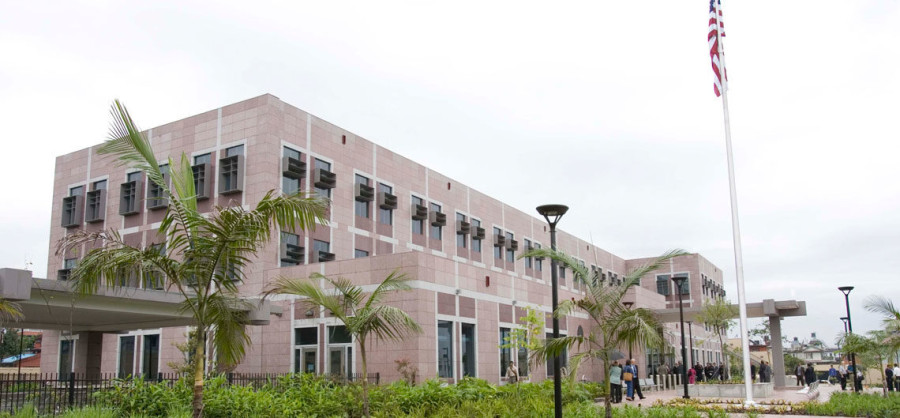National
US embassy attempts to clear the air on MCC
Issuing a 10-point clarification, the embassy insisted that there is no military component to the MCC.
Anil Giri
As the controversy over the United States’ Millennium Challenge Corporation’s Nepal Compact continues, the US embassy in Kathmandu on Friday issued a 10-point clarification and urged interested parties to read the full text of the agreement.
The press release was in response to a large number of queries from Nepali citizens, politicians, and members of the media about the MCC, according to the embassy. The release clearly states that every Nepali government since 2012 has been in favour of the MCC and that there is no military component to the compact.
“The MCC does not include any military components,” reads the clarification, issued in Nepal. “In fact, US law prohibits the inclusion of military components in any MCC compact.”
The embassy’s clarification should serve as a respite to Prime Minister KP Sharma Oli who has been attempting to pass the MCC Nepal compact via Parliament while convincing naysayers that the grant is beneficial to Nepal. Those who are opposing the MCC, which include leaders from Oli’s own party, have claimed that the US grant, as part of Washington’s larger Indo-Pacific Strategy, has strong military components aimed at countering China in the region.
The US embassy’s press release does not mention whether the MCC is a part of the Indo-Pacific Strategy. However, several visiting US officials have said that the MCC is definitely a part of the IPS, as is everything that the US does in Nepal or the Indo-Pacific Region. The IPS is not solely a military strategy, they said.
The ruling Nepal Communist Party is sharply divided over the MCC’s Nepal compact. A section of the party, led by Oli, has vowed to pass the compact via the Parliament’s ongoing winter session while another section, led by party co-chair Pushpa Kamal Dahal, has opposed the compact.
We all have been hearing & reading a lot about the Millennium Challenge Compact or @MCCgov lately. Here are 10 facts about @MCA_Nepal that I thought everyone should know – like that all the projects were selected by #Nepal w/ their own priorities for economic development in mind! pic.twitter.com/xIT5VFdYny
— Ambassador Randy Berry (@USAmbNepal) January 17, 2020
Signed in 2017, the MCC’s Nepal compact is a $500 million grant that will go towards two infrastructure projects.
“At the request of Nepal’s leaders, the US government began working with Nepal in 2012 toward the development of an MCC compact,” read the embassy’s clarification. “Each government and every Nepali political party, when in power, expressed a desire to conclude the MCC Compact for Nepal’s economic development.”
The MCC is focused purely on economic development by helping to build power lines and improve roads and Nepal does not need to “join” or “sign up” for anything in order to participate in the MCC, the clarification further reads. The $500 million is a grant with no strings attached, no interest rates, and no hidden clauses, said the embassy.
“All Nepal has to do is commit to spending the money, transparently, for the projects that have been agreed upon,” it stated.
Nepal government has also put in Rs 16 million of its own into the MCC compact. Prime Minister Oli, earlier this week, instructed his Cabinet not to speak against the MCC and insisted that the US grant would be approved from the winter session of Parliament.
Similarly, the main opposition Nepali Congress also issued a statement on Friday demanding early ratification of the MCC.
The US embassy said that Nepal had proposed and decided on the projects that the MCC will fund, based on its own priorities, and that the MCC model requires Nepal to hire Nepalis to lead the implementation of the projects.
“MCC project tenders are open, transparent, and available to everyone,” the embassy said. “In Nepal, as in every country where MCC works, parliamentary ratification is required and provides transparency and an opportunity for Nepalis to understand the project.”




 8.22°C Kathmandu
8.22°C Kathmandu














